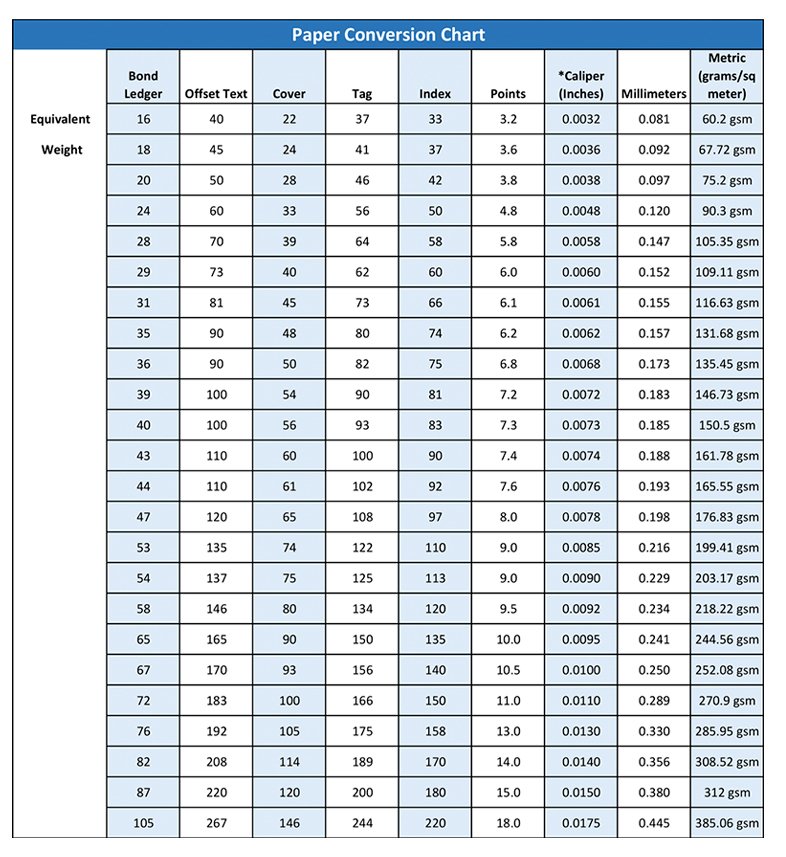
Quick Reference Paper Weight Chart
Quick Links
Basic Weights
The basis weight of a paper is the designated fixed weight of 500 sheets, measured in pounds, in that paper's basic sheet size.
It is important to note that the "basic sheet size" is not the same for all types of paper.
Paper Sizes Chart
Standard U.S. Paper Sizes
Ledger/Tabloid (11" x 17" / 279 x 432 mm)
Great for printing two Letter-sized pages side by side. Often used for large documents or scaled-down technical drawings.Legal (8.5" x 14" / 216 x 356 mm)
Same width as Letter but 3 inches longer. Commonly used for legal documents to allow extra space for notes.Letter (8.5" x 11" / 216 x 279 mm)
Most widely used paper size in North America. Similar to A4 and fits standard home printers.
Standard International A-Series Paper Sizes
A3 (297 x 420 mm / 11.7" x 16.5")
Similar to Ledger/Tabloid. Fits two A4 pages side by side. Great for brochures, drawings, and larger documents.A4 (210 x 297 mm / 8.3" x 11.7")
Half the size of A3. Slightly taller and narrower than U.S. Letter. The most commonly used paper size worldwide (except North America).A5 (148 x 210 mm / 5.8" x 8.3")
Half the size of A4. Ideal for flyers, handouts, and stationery.
Tip: Choose the size that fits your project, preferences, and printer capabilities.
Caliper:
Caliper refers to the thickness of a sheet of paper expressed in thousandth of an inch. This measurement is taken with a micro meter. Normally, paper caliper should not have more than a + or - 5% variance within a sheet. Generally, the relation between caliper and basis weight the greater the caliper (the thicker the paper), the greater the paper weight.
Equivalent Weight:
While different paper types have different basic sizes, papers can still be compared by using equivalent weight.



